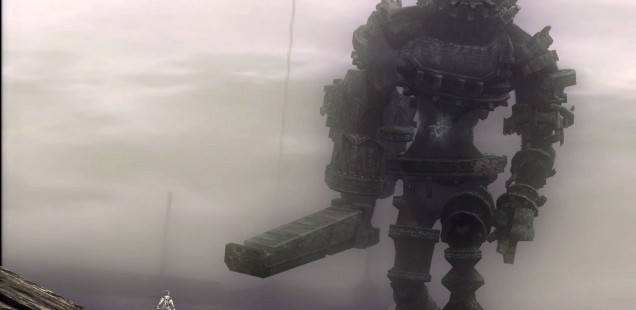
Sum of Its Parts
Zachary Brictson reviews a new indie title for us every issue. This time he’s sharing some thoughts on the craft.
A game isn’t really a game, I’ve come to learn.
Its cutscenes are considered ‘cinematics’, its dialogue dubbed a ‘narrative’, its world composed of ‘graphics’, its music merely a ‘soundtrack’ and its methods of interactivity simply ‘mechanics’. Each game an ocean for critics to reel elements from, and in their outstretched arm grasp what they believe is an argument.
It’s convenient, fun even, to break down complex forms of human expression into comparable components. It makes discussion accessible, ordered, quantifiable and professional. I can rank things now. These graphics are better than those, this script is better than others, and which has the better character, you ask? Let’s simply pull each from their game’s respective universe and cross-reference our findings.
Pay no mind to how they flounder and suffocate, games and their various facets are, after all, just organized sets of code. Software with unbendable rules. It only makes sense that their analysis be so mathematical. A Final Fantasy game is so cleanly sectioned into battle screens, cutscenes and scrollable menus, how can anyone avoid the temptation of isolating them? Of sorting them into pieces, stringing each up to dry to examine and compare more closely?
That’s what I’ve been doing, anyway. Snatching individual elements from games and pretending they can be measured independently. And as they lie there, dead on the deck, I debate them. Here is a paragraph about the story, now the combat and next a slew of flattering adjectives regarding the visuals and sound. Finally, the conclusion comes as a neat aggregate, a counting of points and some cliched dismissal along the lines of ‘overall, the battle system makes up for the visual shortcomings.’
But are games really played like this? Part by part, piece by piece? At what moment during actual play, truly, do players itemize their experiences so perfectly? When exactly does someone split the act of gutting the jugular of a city patrol in Assassin’s Creed into graphics and gameplay? How does anyone’s mind make that distinction? Not only that, but who then has the gall to proclaim which element plays the bigger role?
This is lunacy. Grossly reductionist and uninteresting, and yet frustratingly unavoidable. The structure is so scientific, so rudimentary that I could pump out its format in my sleep. And readers are beginning to notice. The routine, the patterns, the trends, the absolute tunnel vision. Game discussion is so formulaic that its ceased to be relatable. It is so detailed that it has somehow become vague.
Even as games become more complex and continue to blur their designs into less classifiable aspects, the process remains stubbornly vapid. How do critics compensate for games like Half Life 2, Shadow of the Colossus or Journey? Well, these games simply have an additional quality, something called ‘atmosphere’, tacked to the scorecard.
I’m frustrated by this, bored by it, unable to identify with the opinions it presents, sometimes even my own. Because when I’m actually gaming, it feels more like I’m swimming through an interconnected ecosystem of ideas and layered design. I’m interacting with a universe, being conditioned to its rules and how they affect one another. But when I surface to write, I’m there with everyone else, jotting down notes while looking at dead fish. Sorting my memories into a detailed taxonomy of topical paragraphs and neat arguments.
The gaming experience is being lost in translation. Cherry picking and holding games under a microscope is what modern games journalism excels at, and truthfully that’s something I can get behind and learn from. But it needs to keep perspective. An understanding that a game’s devices – its code, algorithms, triggers, and pixels – are only truly alive when our imagination sets them to motion. Is that so embarrassing to admit?
While taking these objects out of context allows for more precise inspection, their actual functions are lost to readers. Here are its gills, yes, but why are they important? Well, throw it back in the water and see. See how the game doesn’t stop when it meets a cutscene, it simply continues. They are linked, they depend on each other, a stream of ideas put in place by very human teams of creators. So let the damn things swim. They may be harder to write about and observe, but isn’t that what makes them worth reading about in the first place?
Zachary Brictson is a Computer Science graduate from Northern Illinois University who chooses to write about games rather than code them, contributing to physical publications like The Printed Blog, sites such as Playstation Universe, and his own blog, Up Magic.
